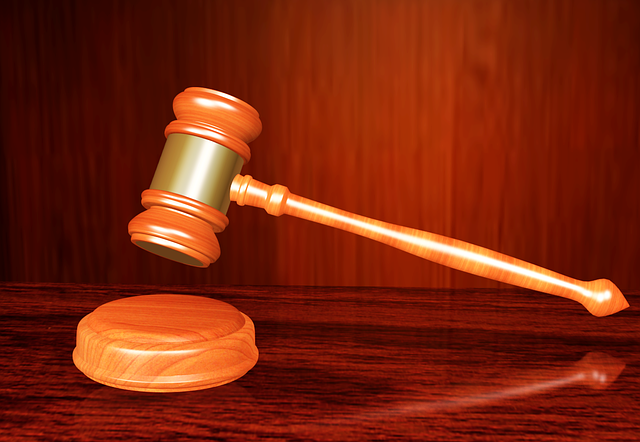Regulatory compliance is a critical business success factor, with severe consequences for non-compliance. In complex white-collar defense cases, jury consultants provide expert guidance on navigating regulatory requirements during trials, ensuring evidence presentation and argumentation align with laws. Their insights help clients achieve favorable outcomes, avoid indictment, and mitigate risks associated with non-compliance. In today's complex legal environment, these experts are indispensable assets, facilitating client communication, managing public perception, and enhancing successful outcomes in high-stakes cases like white-collar crimes. The Role of Jury Consultants in Trials is crucial for organizations facing complex regulatory scenarios, acting as intermediaries between clients and regulators to craft clear, impactful narratives that align with decision-makers' agendas.
Regulatory compliance is a critical aspect of any trial, yet navigating complex legal landscapes can be daunting. This article delves into the essential elements of understanding and achieving regulatory adherence, exploring common challenges faced by organizations. We highlight the strategic role of jury consultants in deciphering legal complexities, offering valuable insights for effective communication with regulatory bodies. Through real-world case studies, we demonstrate how these professionals enhance trial outcomes, underscoring the indispensable contribution of jury consultants in ensuring favorable judicial proceedings.
- Understanding Regulatory Compliance: Definition and Importance
- Common Challenges in Ensuring Adherence to Regulations
- The Role of Jury Consultants in Navigating Legal Complexities
- Strategies for Effective Communication with Regulatory Bodies
- Case Studies: How Jury Consultants Have Enhanced Trial Outcomes
Understanding Regulatory Compliance: Definition and Importance

Regulatory compliance is an essential aspect of any business operation, especially in today’s highly regulated environment. It involves adhering to a set of rules, laws, and standards imposed by governing bodies to ensure fair practices and protect consumers. For businesses, particularly those involved in white-collar defense, understanding and meeting these regulatory requirements are critical for their survival and success. Failure to comply can result in severe consequences, including legal penalties, reputational damage, and loss of customer trust.
The role of jury consultants in trials cannot be understated, especially when navigating complex regulatory compliance issues. These experts offer invaluable insights and strategies during litigation, ensuring that the presentation of evidence and arguments aligns with applicable laws and regulations. By leveraging their knowledge of public perception and legal trends, they help achieve extraordinary results for clients involved in jury trials, particularly those facing white-collar criminal charges. This support is instrumental in crafting effective defense strategies and increasing the likelihood of favorable outcomes.
Common Challenges in Ensuring Adherence to Regulations

Ensuring regulatory compliance can be a complex and multifaceted challenge for any organization, particularly as laws and guidelines evolve over time. Common challenges include keeping up with changing regulations, understanding intricate legal language, and applying consistent adherence across diverse business operations. These difficulties are exacerbated in high-stakes scenarios such as jury trials, where the consequences of non-compliance can lead to severe outcomes like avoiding indictment or substantial fines.
The role of jury consultants in these situations is pivotal. They offer expert insights into public perception and help craft strategies that align with legal frameworks. By leveraging their knowledge of jury trials, these consultants support organizations in presenting compelling cases while navigating the complex web of regulations. This ensures that, for his clients, every effort is made to avoid indictment and mitigate risks associated with non-compliance.
The Role of Jury Consultants in Navigating Legal Complexities

In today’s complex legal landscape, jury consultants play a pivotal role in helping attorneys navigate the intricate web of regulatory compliance issues, especially in high-stakes cases like white collar and economic crimes. These experts possess a deep understanding of the dynamics that influence juries’ decisions, enabling them to offer valuable insights into effective trial strategies. By analyzing past cases, identifying patterns, and assessing community sentiments, jury consultants help craft compelling narratives that resonate with jurors. This strategic guidance is particularly crucial when aiming for winning challenging defense verdicts in the philanthropy and political communities where perception can greatly impact outcomes.
The Role of Jury Consultants in Trials extends beyond mere case analysis. They facilitate client communication, ensuring messages align with the values and perspectives of target audiences. Their expertise in managing complex cases allows attorneys to focus on legal arguments while jury consultants handle public perception, ultimately enhancing the chances of successful outcomes, whether it’s a private dispute or high-profile political trial. This collaborative approach is essential for navigating regulatory compliance issues effectively.
Strategies for Effective Communication with Regulatory Bodies

Effective communication with regulatory bodies is paramount for navigating complex legal landscapes, especially in high-stakes cases where the stakes are high. Jury consultants play a pivotal role here by serving as intermediaries between clients and regulators. They help craft clear, concise, and compelling narratives that resonate with decision-makers. By leveraging their expertise in public perception and behavioral psychology, these consultants can guide organizations through sensitive conversations, ensuring messages align with the regulatory agenda.
In the realm of high-stakes cases, where reputational and financial risks are immense, jury consultants offer strategic insights. They assist in anticipating regulator concerns, framing responses, and managing expectations. Moreover, their knowledge of the philanthropic and political communities can help organizations navigate regulatory scrutiny with nuance. Ultimately, effective communication strategies aimed at avoiding indictment or severe penalties rely on these professionals’ ability to bridge the gap between legal jargon and regulative requirements.
Case Studies: How Jury Consultants Have Enhanced Trial Outcomes

Jury consultants have become integral players in shaping trial outcomes, offering expertise that goes beyond traditional legal strategies. These professionals leverage their deep understanding of human behavior, psychology, and decision-making processes to enhance client defenses. By analyzing potential jurors, they can predict how a jury might perceive evidence, witness testimonies, and even the overall case narrative. This foresight enables lawyers to tailor their approaches, ensuring a more compelling presentation that resonates with the jury’s natural inclinations.
Case studies across various legal domains, including white-collar and economic crimes, demonstrate their significant impact. In many high-stakes trials, the role of jury consultants resulted in complete dismissals of all charges. Their insights guided strategic decisions throughout all stages of the investigative and enforcement process, from pretrial preparation to post-verdict discussions. This collaborative approach not only strengthens defenses but also ensures that trials are fair, transparent, and just.
Understanding regulatory compliance is crucial for any organization to avoid legal pitfalls and maintain integrity. The article has explored the complex landscape of regulatory adherence, highlighting common challenges faced by businesses and the critical role jury consultants play in navigating these complexities. By employing effective communication strategies with regulatory bodies and leveraging the expertise of jury consultants, organizations can significantly enhance their trial outcomes and ensure compliance with ever-evolving legal frameworks. The case studies presented demonstrate that the insights and guidance provided by jury consultants are invaluable assets in achieving favorable results and safeguarding business interests.






